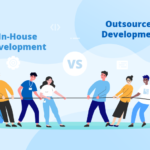Building a Fantasy Sports App that caters to multiple sports is an ambitious and rewarding endeavor. As the world of fantasy sports continues to evolve, more users are seeking apps that offer seamless experiences across various sports such as football, basketball, cricket, and even esports. In this article, we explore the challenges and opportunities involved in developing a fantasy sports app for multiple sports, providing insights into the Fantasy Sports App Development process.
Understanding Fantasy Sports App Development
Fantasy sports are online games where users create teams made up of real-world athletes. These athletes score points based on their actual performance in real-world games. Users compete against others based on how well their team performs. Building a Fantasy Sports App involves integrating real-time data feeds, user management systems, robust backend infrastructure, and creating engaging features for users.
The Multi-Sport Factor
Building an app that supports multiple sports is more complex than developing a fantasy sports platform for a single sport. Each sport has its own set of rules, scoring systems, and unique requirements. For example, fantasy football scoring is vastly different from that of fantasy basketball or cricket. A Fantasy Sports App Development Company needs to ensure that each sport’s scoring mechanics, player statistics, and game data are properly integrated and function smoothly.
Key Challenges in Developing a Multi-Sport Fantasy Sports App
Different Scoring Rules and Game Formats
Each sport has distinct rules, scoring formats, and player categories. For example:
- In fantasy football, players earn points for touchdowns, yardage, and other metrics.
- In fantasy basketball, points are awarded for field goals, assists, rebounds, and steals.
- Fantasy cricket involves scoring based on runs, wickets, and strike rates.
The Fantasy Sports App Development team must adapt to the specific needs of each sport, customizing the app’s scoring system and ensuring that it remains flexible and scalable as new sports are added.
Data Integration and Real-Time Updates
Fantasy sports rely heavily on accurate, real-time data to update player statistics and rankings. The Fantasy Sports App Development Company must ensure seamless integration with sports data providers to pull live data from various sources like official league websites, APIs, or third-party data services. Real-time updates are crucial to maintaining user engagement, as they help users track the performance of their teams and make timely decisions.
Additionally, different sports have different types of data needs. For instance, in cricket, player statistics may need to be updated frequently due to the nature of the game, while in football, updates might occur less often but need to be highly accurate during key moments like touchdowns or field goals.
User Experience Across Multiple Sports
Building a Fantasy Sports App that serves users across different sports can be challenging from a UI/UX perspective. Users expect a seamless and intuitive experience, regardless of the sport they are engaging with. Ensuring that the app’s interface remains user-friendly across various sports while maintaining specific features like:
- Drafting process
- Player stats visualization
- Team management tools
- Leaderboard and rankings
The design should be flexible enough to handle the nuances of each sport without compromising the overall user experience. Creating a streamlined interface that is easy to navigate, even for those who are only familiar with one sport, is critical for broad user adoption.
Diverse User Preferences and Engagement
Different sports attract different kinds of audiences. For instance, football enthusiasts may prefer playing short-term leagues that last for a single game or a season, while cricket fans may lean towards longer fantasy leagues due to the extended nature of the sport. The app needs to cater to a variety of game formats, from daily fantasy sports (DFS) to season-long leagues.
The challenge lies in offering customization options that allow users to select their preferred sport and game format while maintaining consistency in the core functionalities of the app.
Legal and Regulatory Compliance
Fantasy sports apps must comply with the various legal and regulatory frameworks of different regions. The legal landscape for fantasy sports varies significantly across countries, and a multi-sport platform has to navigate these regulations carefully. For instance, in some regions, fantasy sports are considered a game of skill and are allowed, while in others, they are regulated as gambling.
A Fantasy Sports App Development Company must be well-versed in the legal intricacies of fantasy sports, ensuring that the app adheres to local laws, such as age restrictions, data protection laws, and compliance with gaming regulations.
Opportunities in Multi-Sport Fantasy Sports App Development
Expanding User Base
Offering multiple sports in a single app opens up the potential to attract a broader audience. A Fantasy Sports App that supports multiple sports can engage users from different fan bases, ranging from football lovers to cricket enthusiasts. This expanded user base can lead to higher app engagement, more frequent logins, and improved revenue opportunities through advertising or in-app purchases.
Cross-Sport Competitions
A multi-sport fantasy platform allows users to participate in cross-sport fantasy competitions, offering a unique feature that can distinguish your app in a competitive market. For example, users could draft teams that combine players from different sports, creating a more dynamic and engaging experience. This would appeal to sports fans who follow multiple sports and want to engage with them in one platform.
Revenue Opportunities through Diverse Offerings
By supporting multiple sports, the app can provide various monetization opportunities. These could include:
- Entry fees for fantasy leagues: Each sport could have its own set of leagues, tournaments, or cash prizes.
- Subscription-based models: Users could pay for premium access to stats, expert advice, or fantasy insights for each sport.
- Sponsorships and partnerships: A wider variety of sports provides the opportunity to attract more sponsorship deals from different brands targeting specific sports.
Increased Engagement with Seasonal and Event-based Features
The ability to offer fantasy leagues for multiple sports means you can keep users engaged year-round. When one sport is in the off-season, you can promote leagues for other sports, such as basketball or esports. Event-based fantasy leagues around major tournaments like the Super Bowl or the Cricket World Cup can drive user engagement and keep players coming back to your platform.
Conclusion
Developing a multi-sport fantasy sports app presents significant challenges but also offers many opportunities for growth and expansion. By addressing the complexities of data integration, scoring systems, user interface design, and legal compliance, a Fantasy Sports App Development Company can create an app that engages users across a variety of sports. By doing so, they not only meet the needs of diverse sports fans but also open doors to increased user acquisition, engagement, and revenue potential. With the right strategy, building a multi-sport fantasy sports platform can be a highly rewarding venture.






